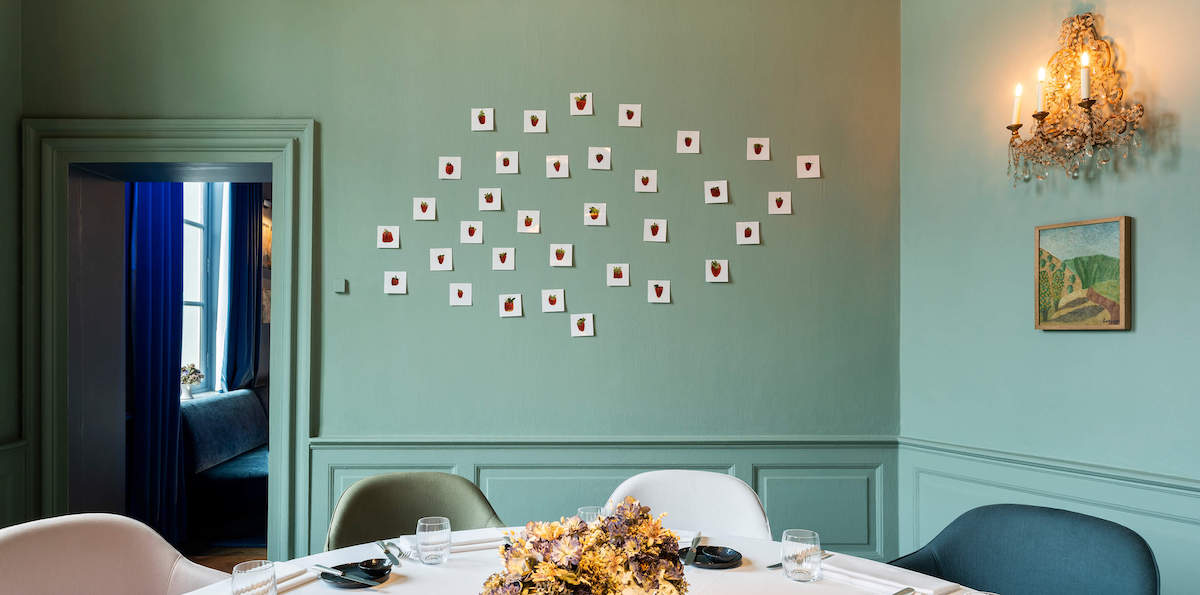
Hans-Peter Feldmann - 2017
One Pound Strawberries
Hans-Peter Feldmann continues his search in the obsessed world of images which he regarded and still regards as the most efficient and comfortable communication means. He started to build a unique language and reconstruct the pictorial context through the reassembling of images found from books, magazines, family albums, postcards, etc. Each individual image looks banal by itself. However, it was only when they came in a group of ten, fifty or even a hundred that their meaning starts to reveal. For example, a picture of strawberry or many strawberries looks like a publicity image. However, when we make a portrait of each of the 34 strawberries and group the portraits together, we do not only see the uniqueness of each strawberry but the many different ways of being a strawberry. He presents 34 small photographs of all the strawberries making up one pound of weight.
Hans-Peter Feldmann does not believe in unique specimen, he said at another occasion, because “the uniqueness makes everything all too important, not least in terms of the art market”. When a collector bought his ready-made work of a soup plate with two spoons, his reaction was –– he could have had a nice plate and spoons in any department store for less than 5 Euros. The fact is that Feldmann was bored by the art world that he quitted it temporarily in the 1980s and destroyed most of his work, except those important ones that he gave to his friends. Though he is often referred to as the father of conceptual art, he does not like to take himself or the art world too seriously. He has never signed his work nor given them a title. He’s against the authorship system and he hates even more the commoditization of art. It’s his rule to not to live on his work. He opened a gift shop with his wife in the 1990s and worked like a businessman seven days a week until his retirement.
He presents 34 small photographs of all the strawberries making up one pound of weight. Hans-Peter Feldmann does not believe in unique specimen, he said at another occasion, because “the uniqueness makes everything all too important, not least in terms of the art market”. When a collector bought his ready-made work of a soup plate with two spoons, his reaction was –– he could have had a nice plate and spoons in any department store for less than 5 Euros. The fact is that Feldmann was bored by the art world that he quitted it temporarily in the 1980s and destroyed most of his work, except those important ones that he gave to his friends. Though he is often referred to as the father of conceptual art, he does not like to take himself or the art world too seriously. He has never signed his work nor given them a title. He’s against the authorship system and he hates even more the commoditization of art. It’s his rule to not to live on his work. He opened a gift shop with his wife in the 1990s and worked like a businessman seven days a week until his retirement.



